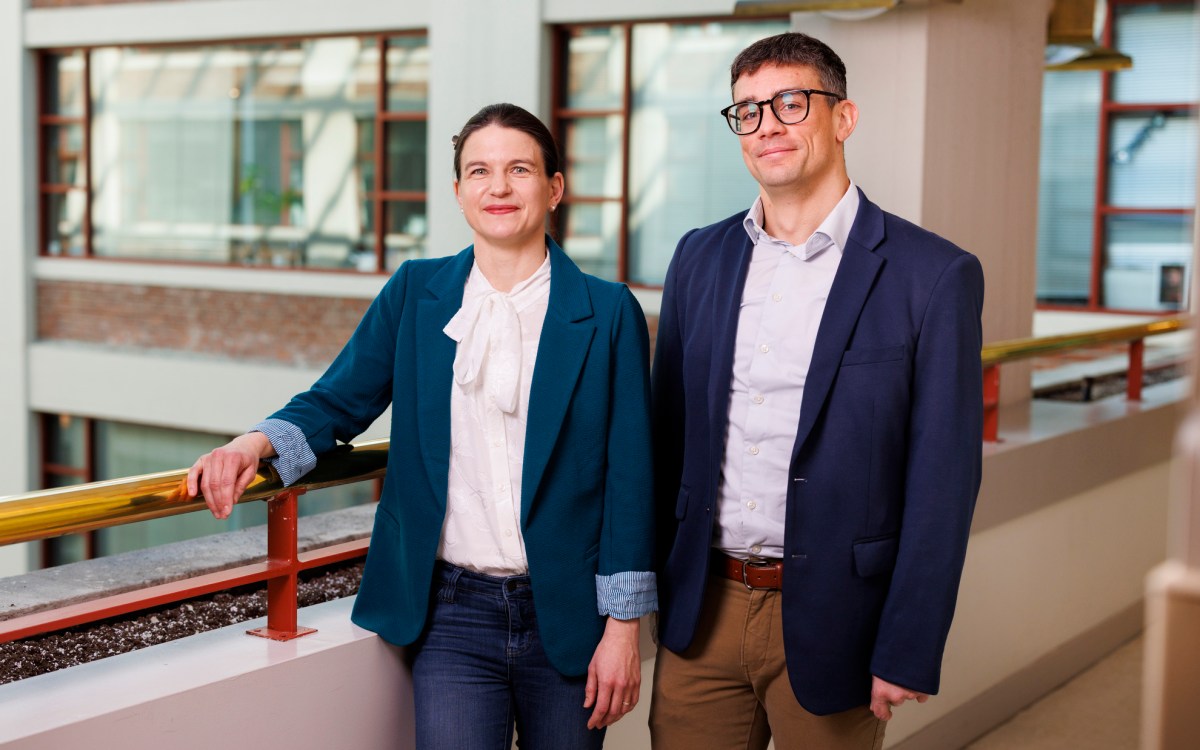Harvard researchers complete genomic sequence of deadly malaria parasite
Reveals potential new anti-malarial drug targets
Malaria is the world’s most serious parasitic tropical disease and kills more people than any communicable disease except for tuberculosis. There is more human malaria in Africa today than at any time in history. P.falciparum, the most lethal form of the disease, accounts for the majority of infections, 200 to 300 million, resulting in 1 to 3 million deaths annually. One quarter of the world’s population is at risk for infection. Now researchers are looking for clues to the mysteries that have made malaria impossible to defeat with drugs. Dyann Wirth, director of the Harvard Malaria Initiative and professor of immunology and infectious diseases at the Harvard School of Public Health, is author of two papers focusing on what has been learned from the genetic sequencing of P.Falciparum and how it can possibly be applied to public health. The papers appeared in the Oct. 3, 2002, issue of the journal Nature and the Oct. 4, 2002, issue of the journal Science.





